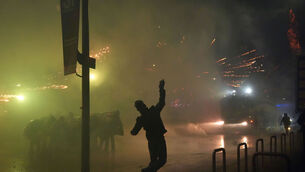Murdoch faces toughest scrutiny of career before British MPs
The media mogul has been forced to shelve his attempt to take full control of satellite broadcasting company BSkyB, while some of his closest and most trusted News Corporation aides have fallen on their swords amid the growing furore.
Murdoch, 80, will come under some of the fiercest public scrutiny in his long and successful career, when he appears with his son, James, in front of MPs in parliament today.














